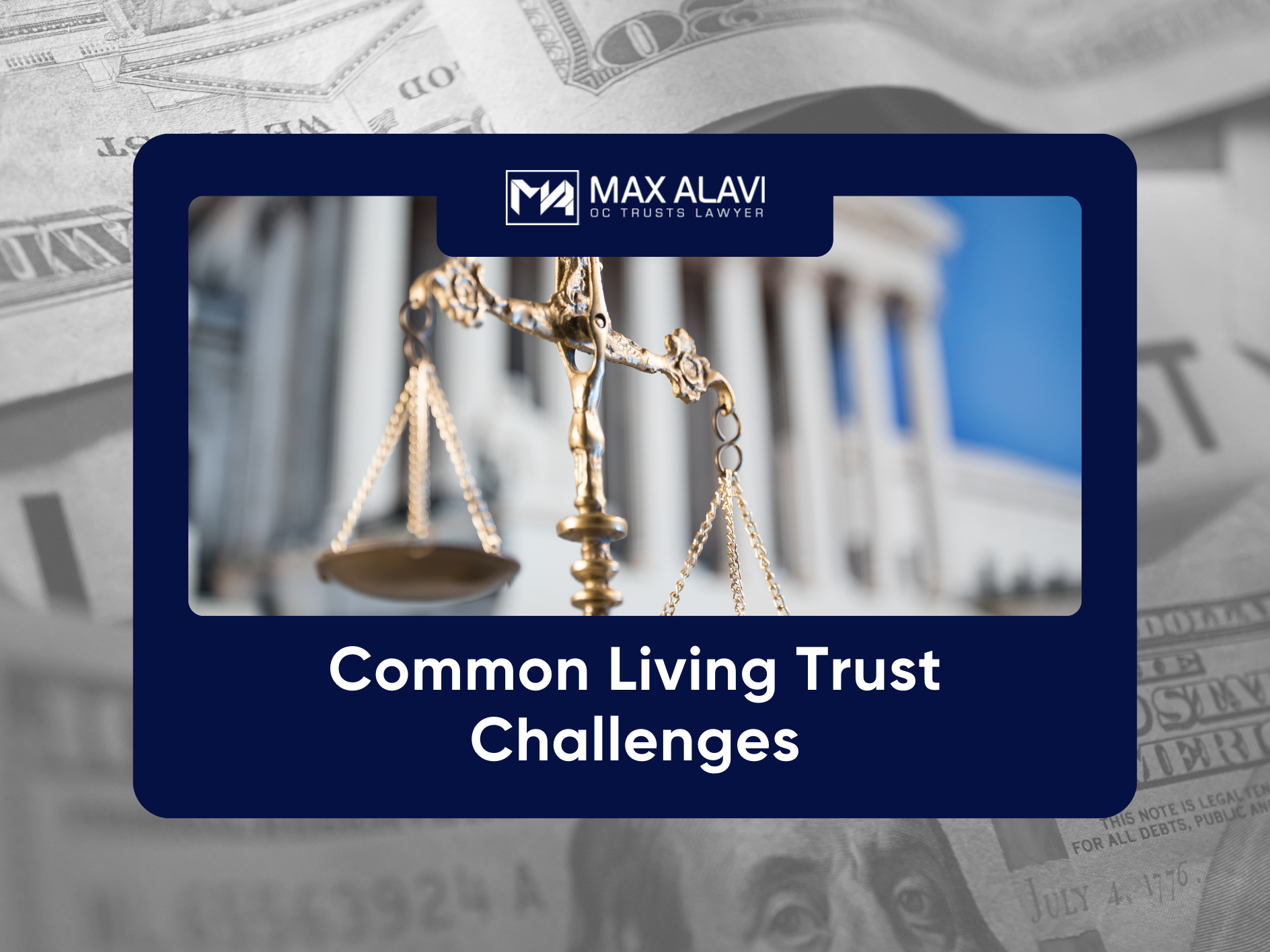Creating a living trust is an effective way to seamlessly allocate the distribution of assets upon your death when done correctly. Any trust can be challenged in court, and one of the most effective ways to avert legal challenges is by knowing a few of the most common causes for disputes. Find out why trusts are challenged and how to safeguard against it from the living trust attorneys at OCTrustslawyer.com.
Common Living Trust Challenges
Living trusts are a popular estate planning tool designed to streamline the distribution of assets after one’s passing. However, despite all their benefits, living trusts are not immune to legal challenges. Heirs or beneficiaries who are named in a trust (or who feel like they have been omitted from a trust due to an error) may bring a legal challenge against a trust, contesting its terms for asset allocation.
There are several common reasons why a trust might be challenged. Regardless of the underlying reason, it’s critical to consult with an experienced trust attorney before pursuing the matter in court.
What is a Living Trust?
First, some background is in order.
A living trust is a very common estate planning document. Just like your will, a living trust can include instructions for how your assets are to be distributed upon your death.
Unlike a will, however, a living trust allows you to set aside certain assets, resources, or funds, naming them to the trust where they can then be managed by a legal representative known as a trustee. In other words, the trust is the legal owner of the assets, but the assets are managed by the trustee.
The trustee’s job is to manage them in a way that benefits the named heirs and beneficiaries, preserving the maximum value of the estate until those assets are ultimately distributed. Another key difference between a will and a trust is that living trusts allow heirs and beneficiaries to skip the lengthy and costly probate process, something that a will can’t do.
Can a Trust Be Challenged?
There are a number of reasons why trusts end up being challenged in court. Some of the most common reasons include:
- The trust isn’t properly funded. In order for the trust to be binding, the named assets must be properly transferred into the trust.
- Ambiguous language. If the terms of the trust are unclear somehow, it can lead to disagreements or disputes between different family members.
- Questions regarding the trustee’s actions. A trust may be challenged if there is reason to think the trustee has been neglectful, engaged in fraud, or otherwise violated their fiduciary duty.
- Concerns about undue influence. Sometimes, a trust may be challenged if there is a perception that one heir or beneficiary exerted inappropriate influence or manipulation over the trust’s maker.
- Misgivings about the trust maker’s mental capacity. Trusts are also challenged when there is reason to believe the trust maker was not in the right mind to create, revise, or amend the terms of the trust.
How to Avoid the Need for Trust Litigation
Should a trust be challenged for any reason, it typically results in some form of trust litigation. This might mean a full legal challenge (usually a bench trial, but sometimes a trial involving a jury), or it might mean some form of mediation and settlement.
As the grantor (the person creating the trust), you naturally want to prevent your heirs and beneficiaries from having to experience these legal complications. While there is no way to fully prevent a challenge to your trust, there are a few steps you can take to minimize the risk.
Here are some brief guidelines:
Avoid Issues with Trust Funding and Asset Transfer
One of the most important things you can do is to work with your living trusts attorney to ensure proper funding. If you’re naming assets to the trust, you must ensure that the assets are retitled to the name of your trust; this goes for real estate, for investment accounts, and beyond. Review your trust and make certain that all named assets have been properly transferred over.
Avoid Disputes Among Beneficiaries
While it isn’t always possible to cut out arguments between family members, a little communication goes a long way. Be intentional about conveying to your loved ones what decisions you’ve made about your estate and provide opportunities for family members to discuss frustrations or disagreements before it comes time for the trust to be administered.
Avoid Trustee Issues
The best way to avoid issues with your trustee is to do your due diligence during the initial trustee selection, choosing someone you know who will be responsible and ethically upright. Choosing someone with a little bit of financial experience can sometimes be helpful, though it’s not necessary. Also, clear communication with the trustee can help emphasize the importance of their fiduciary responsibility.
Avoid Ambiguity in Your Trust Documents
Spend time with your living trust lawyer, going over the documents with a fine-toothed comb and clarifying any language that seems unclear or open to interpretation.
Avoid Disputes Arising from Perceived Mental Incapacity
To sidestep concerns over your mental capacity, it may be wise to compile any relevant medical documents, attesting to your soundness of mind at the time you create your trust. A living trust attorney can advise you further on the types of documentation you might need.
Take Care to Avoid the Need for Living Trust Litigation
A living trust is one of the most valuable tools to ensure that the transfer of your assets is seamless. Even so, legal challenges can arise. Make sure you’re doing everything possible to avert the risk of a contested trust and work closely with an experienced living trust attorney. If you’re in California, consult with the proven team at OCTrustslawyer.com, at your convenience.






